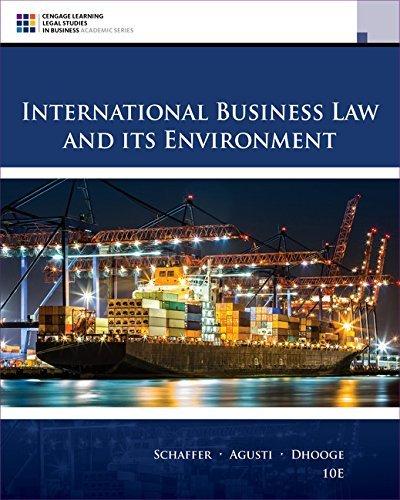The claimants were foreign entities that had invested in the 1999 expansion of an airport near Budapest,
Question:
1. The measure of damages was quite high because the case was deemed an unlawful expropriation. Why was it unlawful? Would damages have been lower if it had been lawful?
2. The panel found damages as of the date of the Award rather than the date of the taking. Why? How can one tell whether to apply the Chorzow date of valuation rule or the rule in this case?
3. The panel chose the DCF method. Why was that necessary under the circumstances of this case?
Fantastic news! We've Found the answer you've been seeking!
Step by Step Answer:
Related Book For 

International Business Law And Its Environment
ISBN: 9781305972599
10th Edition
Authors: Richard Schaffer, Filiberto Agusti, Lucien J. Dhooge
Question Posted:





